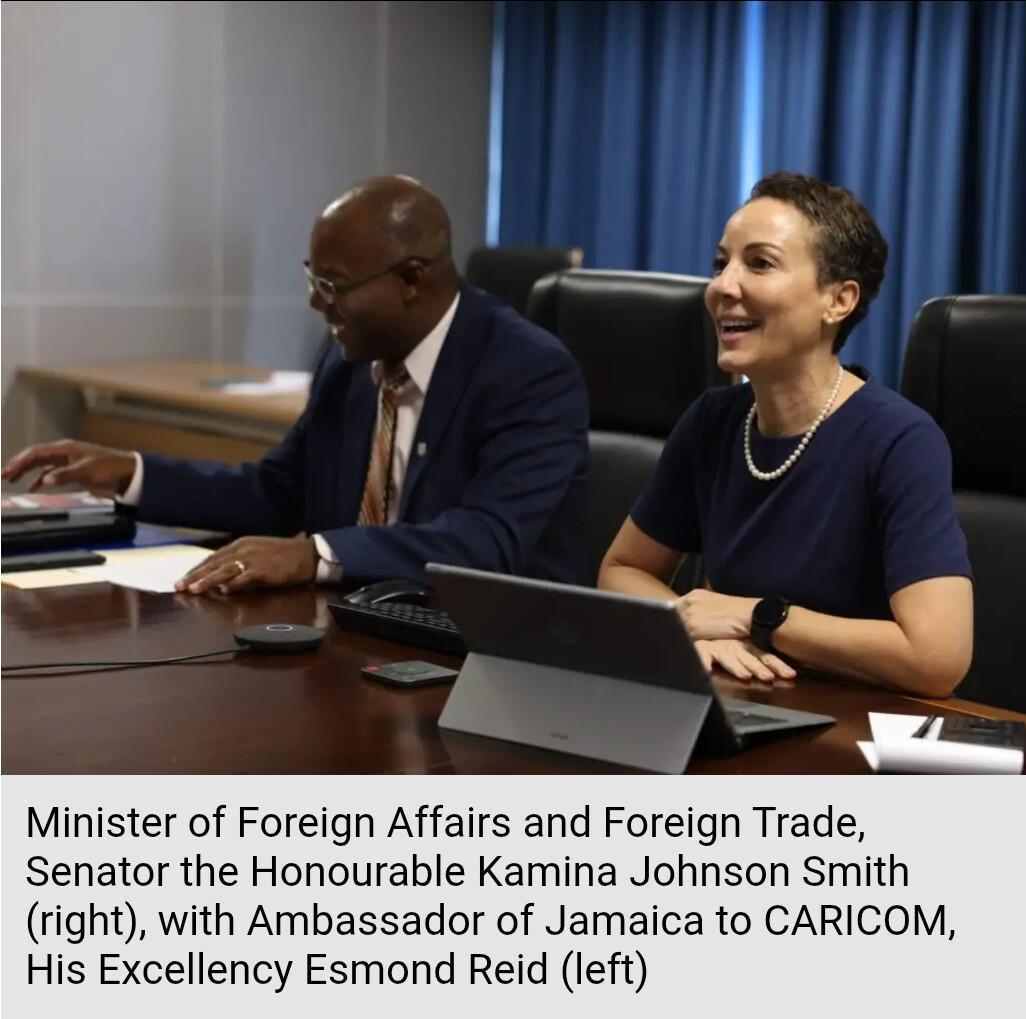Jamaica Removed from EU High-Risk List: Impacts on Financial Security and Regional Stability
Jamaica has received good news—it's no longer on the European Union's list of high-risk countries for money laundering and terrorism financing. This move shows progress in how the world views Jamaica’s efforts to keep its financial system clean. It’s a win not just for Jamaica but also for the entire Caribbean region. Barbados has also benefited from similar updates recently, strengthening regional ties and cooperation.
Why Is This Removal a Big Deal?
What Is the EU’s High-Risk List?
The European Union maintains a list of countries considered risky for money laundering and terrorism funding. This list affects how businesses and financial institutions operate across Europe and internationally. Countries are evaluated based on their anti-money laundering laws and how well they fight terrorism financing. Jamaica was added some years ago, but now, thanks to recent reforms, it’s being removed.
How Does This Help Jamaica’s Economy?
Being seen as a safe place for financial dealings boosts investor confidence. It makes it easier for companies from Europe and other parts of the world to do business here. It also helps reduce compliance costs — things like paperwork and extra checks. This can attract new investments, push economic growth, and open doors for more trade.
Why Does This Matter for the Region?
This update boosts Jamaica's reputation on the world stage and shows the Caribbean can meet global standards. It also encourages cooperation between neighbors. When one country improves its financial systems, others follow, making the whole region more stable and attractive for investors.
How Jamaica Achieved This Milestone
Key Reforms in Jamaica’s Anti-Money Laundering Efforts
Jamaica made major changes to its laws and processes to fight money laundering and terrorism funding. The government worked hard, adopting stricter rules and working closely with international watchdogs. These efforts included improving reporting systems and training staff at financial institutions.
Words of Support from Leaders
Prime Minister Dr. Andrew Holness praised the move, saying it reflects Jamaica’s hard work. He stressed that the country’s reforms have strengthened its financial systems. Meanwhile, Foreign Minister Camina Johnson Smith also welcomed the news, thanking the EU for recognizing Jamaica’s progress.
Connection to the FATF Grey List
Jamaica had already been removed from the Financial Action Task Force (FATF) grey list last year. That was a stepping stone that helped the EU recognize Jamaica as a safer country for financial activity. These efforts show how international cooperation and compliance go hand in hand.
What Does This Mean for Jamaica’s Economy?
Opportunities for Growth
With this new standing, Jamaica is likely to see an increase in foreign investments. Companies from Europe and beyond will view Jamaica as a trustworthy place for banking and business. It also opens up chances to expand exports and attract tourists and investors.
How the Stock Market Reacted
After the news, the Jamaica Stock Exchange (JSE) saw some ups and downs. The main index dropped over 1,900 points, but some companies gained value. Firms like Jamaica Public Service and financial services saw gains. Others lost, including entertainment and manufacturing stocks. Overall, the market is adjusting to the news, but long-term benefits are expected.
Challenges to Watch For
Even with this progress, Jamaica must keep up its reform efforts. Slipping back into bad habits could undo this good work. Ongoing transparency and stricter enforcement are key to maintaining trust and credibility.
Regional and Global Impact
Barbados’ Efforts to Follow Suit
Barbados has also pushed hard to be removed from the EU list. Prime Minister Mia Mottley used regional meetings to urge the EU to review its position. If successful, this could lead to similar benefits for other Caribbean nations. It’s about showing the world they are serious about cleaning up their financial systems.
Strengthening Caribbean Ties
This move encourages other Caribbean countries to work on their anti-money laundering rules. International agencies and local governments are teaming up for better cooperation. The goal is to create a region known for transparency and stability.
What’s Next for the Caribbean?
The Caribbean has an opportunity to become a hub for clean and safe finance. Countries can learn from Jamaica’s success and push forward with reforms. Better systems mean more trust, more investments, and a stronger regional economy.
Why Clean Money Matters
Trends in Global Fight Against Money Laundering
Across the world, countries are stepping up efforts to fight dirty money. Governments are adopting better tools, like digital tracking and stronger laws. The goal is clear: nations want to be seen as safe, reliable, and transparent.
Tips for Financial and Business Leaders
- Regularly review and audit anti-money laundering systems.
- Train staff on new rules and common tricks used to hide illegal money.
- Stay informed on international standards and updates.
- Work with regional partners and follow best practices.
Final Thoughts
Jamaica’s removal from the EU’s high-risk list marks a major step forward. It shines a light on the country’s dedication to strengthening its financial health. This change benefits Jamaica’s economy, boosts regional stability, and improves its reputation worldwide. But the journey doesn’t end here. Continued effort and vigilance will ensure Jamaica remains on the right track, fostering growth and trust for years to come.


